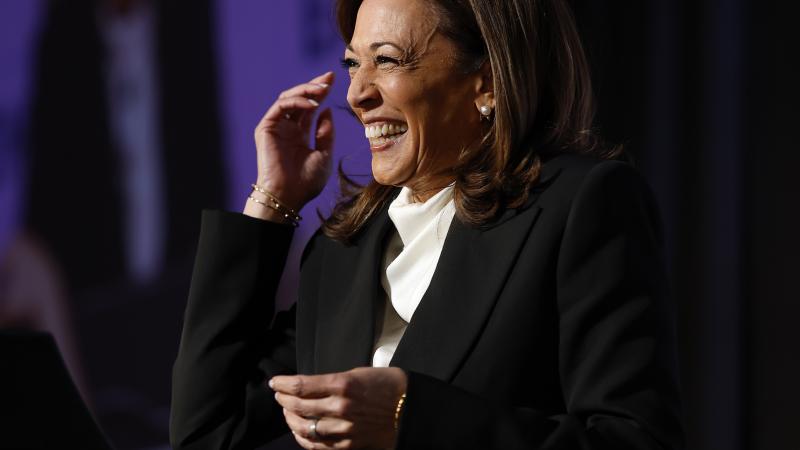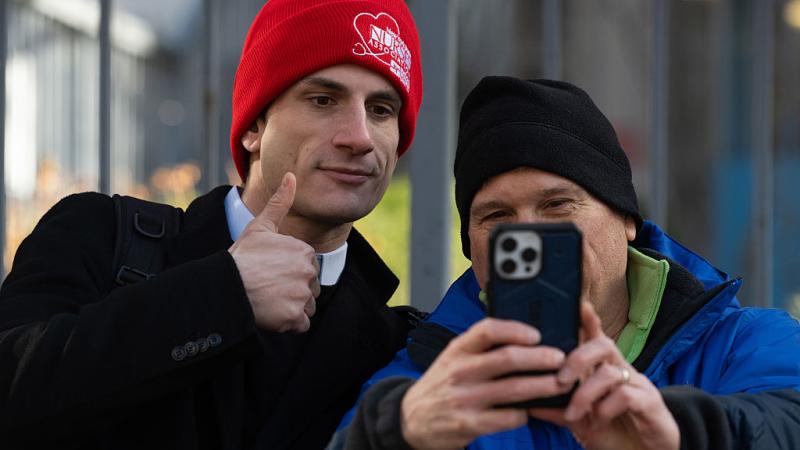Push for ranked-choice voting is spreading across the U.S., despite bipartisan concerns
Ranked-choice voting is “detrimental” to “transparency,” as it “turns elections into a black box,” leading to delays in counting votes, more difficult recounts, election results being “harder to understand, and discouraging people from voting,” Jason Snead said.
Elected officials across the political spectrum and local Democratic and Republican parties are fighting against ranked-choice voting (RCV) as the election system will be considered by voters in multiple states next year.
RCV is an election process being introduced in states across the country, but is facing pushback from both sides of the political aisle, including efforts to ban it. With RCV, if no candidate receives more than 50% of the vote, then a runoff system is triggered. When voters cast their ballots, they rank each candidate in order of first-to-last.
If one candidate doesn't reach the 50% plus-one vote threshold, then the candidate with the least amount of first-choice votes is eliminated, then second-choice votes from those who voted for the last-place finisher are reallocated among the remaining candidates and tallied – in a process that continues until a candidate receives the majority of the vote.
RCV proponents argue that the system results in representative outcomes and majority rule, incentivizes positive campaigning, allows for more voter choice, and saves money when replacing preliminaries or runoffs, according to pro-RCV organization FairVote.
Alaska and Maine are the only two states to have RCV at the state level, and both experienced delays in announcing the 2022 midterm election results. Election Day 2022 was Nov. 8, but the races for Alaska incumbents GOP Sen. Lisa Murkowski and Democrat Rep. Mary Peltola weren't tabulated until Nov. 23.
Murkowski trailed slightly behind Trump-backed Republican challenger Kelly Tshibaka on Nov. 18 at 43.11%, to Tshibaka's 43.28%, with 95% of the ballots counted. However, after counting the ranked choices until a candidate received a majority, Murkowski won with 54% of the vote. In Maine's election, the results were announced eight days after Election Day.
FairVote says that three U.S. counties and 45 cities also have RCV for their elections.
There are efforts to repeal RCV in Alaska, and a bill introduced in the Maine state legislature to repeal RCV failed to pass. The Maine Republican Party has stated that it will not consider all the RCV results in the GOP presidential primary and only consider the results of the candidate who wins the most votes during the first round, reported Maine Public.
Florida, Montana, Idaho, South Dakota, and Tennessee have banned RCV. Ohio is currently considering a bill that would ban RCV, the Ohio Capital Journal reported.
Efforts are underway to have residents in various states vote on ballot measures for RCV-related constitutional amendments in November, with some measures already set to be voted on in the general election. Many of the ballot measures would implement RCV for presidential primary elections.
The states that are either considering bills in the legislature or ballot measures to be voted on in the November election are Arizona, Colorado, Idaho, Montana, Nevada, Oregon, and Wisconsin.
Washington, D.C., also has a ballot measure applying RCV for voters to consider. However, the city’s Democratic Party has filed a lawsuit to block the ballot measure, arguing that it might disenfranchise minority and low-income voters, reported Oklahoma Watch.
NAACP chapters in Oakland, Calif., the state of New York and Arlington, Va., have all raised issues about RCV potentially confusing voters.
While Montana and Idaho enacted laws banning RCV, constitutional amendments approving them would supersede those laws.
In Colorado and Nevada, elected officials have also warned against RCV.
Colorado county clerks have expressed concerns over lower voter turnout due to RCV’s complexity and likely negative impact on the security of the state’s election system, according to Coloradoan. The Colorado ballot initiative was proposed by the former CEO of Denver-based dialysis giant DaVita, Kent Thiry, who claims it will bring elections back to the people, rather than allow political insiders to have too much power, the news outlet reported.
In Nevada, elected officials from both sides of the political aisle – including the state’s governor, senators, a congressman, and state legislators – oppose RCV, according to Ballotpedia.
Wisconsin is simultaneously considering a ballot measure to ban RCV through a state constitutional amendment and a bill to implement RCV, according to Fox News.
Likewise, federal lawmakers have two bills pending regarding RCV. The Senate bill endorses RCV. Called the Voter Choice Act and reintroduced last month by Senators Angus King, I-Maine, and Michael Bennet, D-Colo., would provide “$40 million in federal grants to cover up to 50 percent of the cost for state and local governments that choose to adopt RCV” for federal elections, according to King’s press release.
Meanwhile, the House bill, the One Vote One Choice Act, introduced by Rep. Mike Lawler, R-N.Y., in May, would “prohibit States from using ranked choice voting to carry out an election for Federal office.”
Jason Snead, executive director of Honest Elections Project, told Just the News on Monday that RCV proponents are “misleading people” by claiming that RCV presidential primaries are open primaries, where voters do not have to declare their party affiliation to cast their ballot. RCV primaries are actually like the California jungle primary system, where there is no party primary and all the candidates run “on a single ballot for each race,” Snead explained.
He added that by forcing candidates to seek to win second and third-place votes, they must outsource their negative campaigning to independent expenditure groups. Therefore, campaigns need “more dark money,” Snead said.
As a result, through RCV, donors increase “their influence over politics” at “the expense of political parties,” he noted.
After Election Day 2024, Snead said that Americans could wake up to "one-fifth of the states in the nation” using RCV in future elections, which would “be a massive shift in the way Americans are conducting elections.” He believes RCV is “detrimental” to “transparency,” as it “turns elections into a black box,” leading to delays in counting votes, more difficult recounts, election results being “harder to understand, and discouraging people from voting.”
“RCV is elite-choice voting,” Snead said, adding that the “same cohorts of big money donors on the left are pushing this, weakening the party apparatus,” so that they will be “in position to step in and fill the gap.” He believes that “liberal mega-donors are buying a new election system” that will “cater to their interests” and help push politics further left.
The Facts Inside Our Reporter's Notebook
Links
- introduced in states across the country
- according to pro-RCV organization FairVote
- Murkowski trailed slightly
- Murkowski won
- announced eight days
- FairVote's tracker
- repeal RCV in Alaska
- failed to pass
- reported Maine Public
- have banned RCV
- ban RCV
- Arizona
- Colorado
- Idaho
- Montana
- Nevada
- Oregon
- Wisconsin
- filed a lawsuit
- NAACP chapters
- Colorado county clerks
- the news outlet reported
- oppose RCV
- according to Fox News
- Voter Choice Act
- One Vote One Choice Act
















